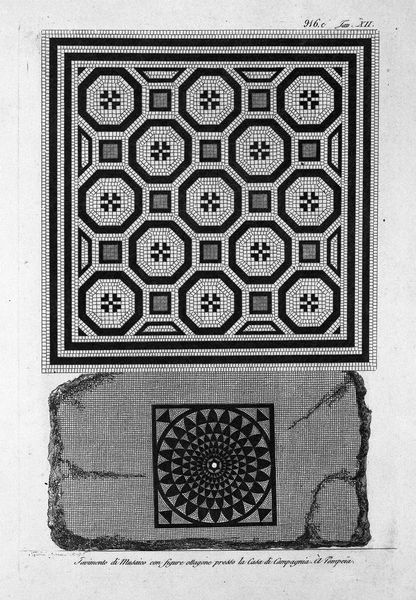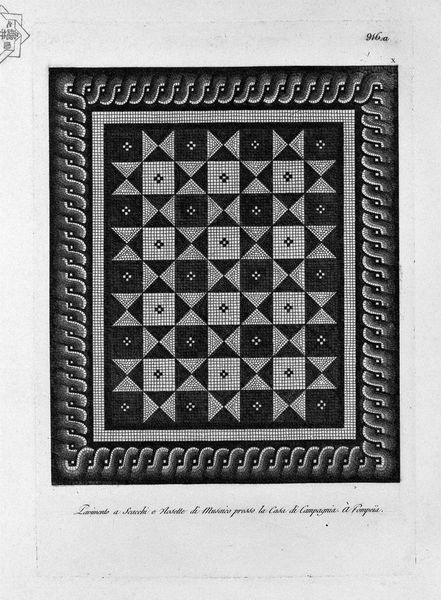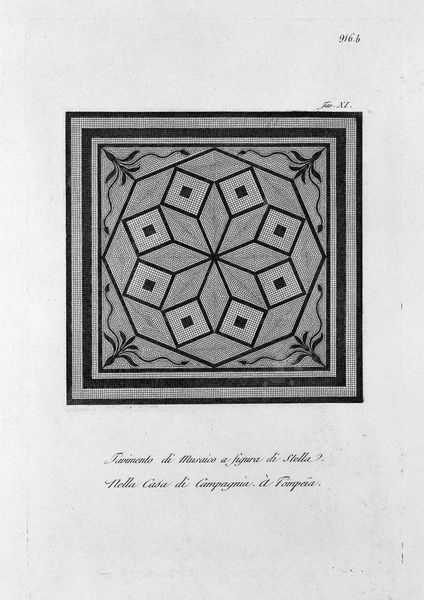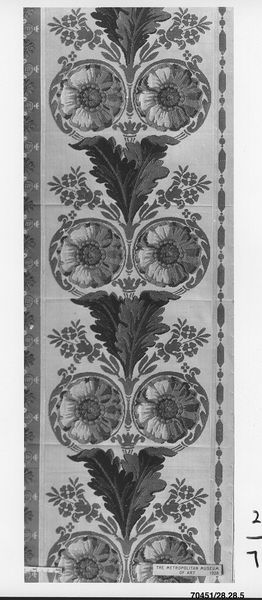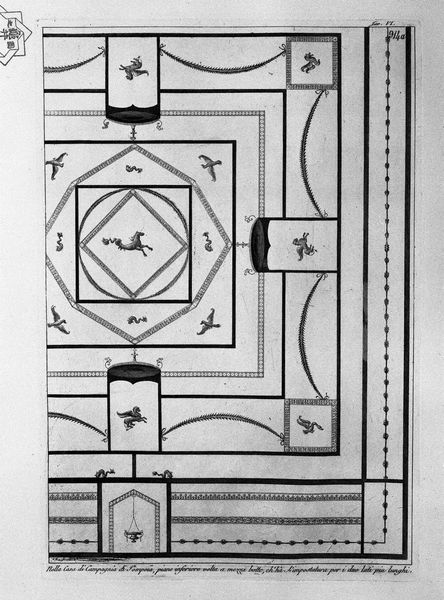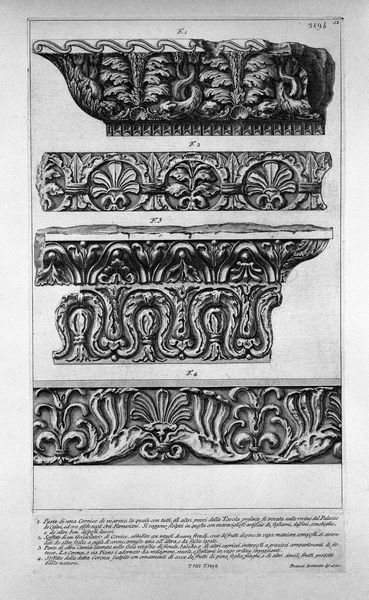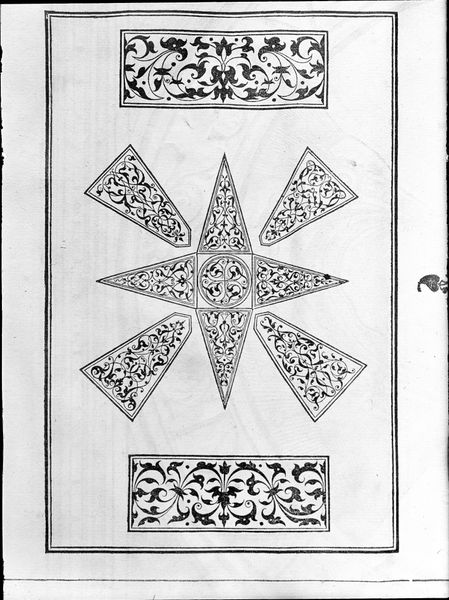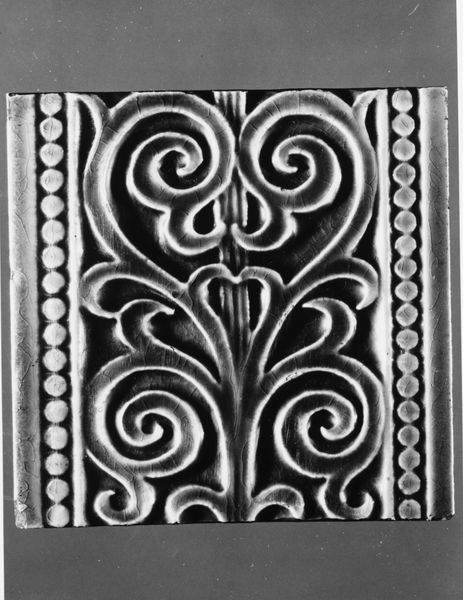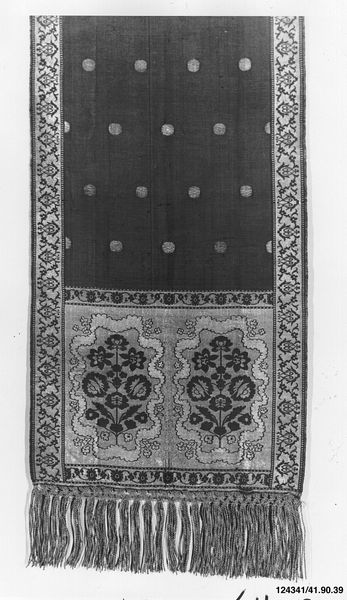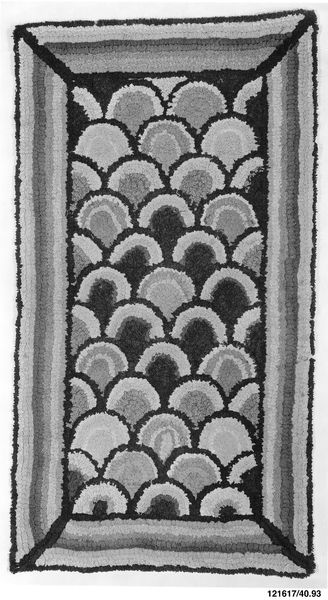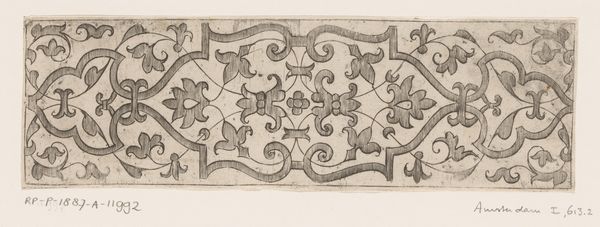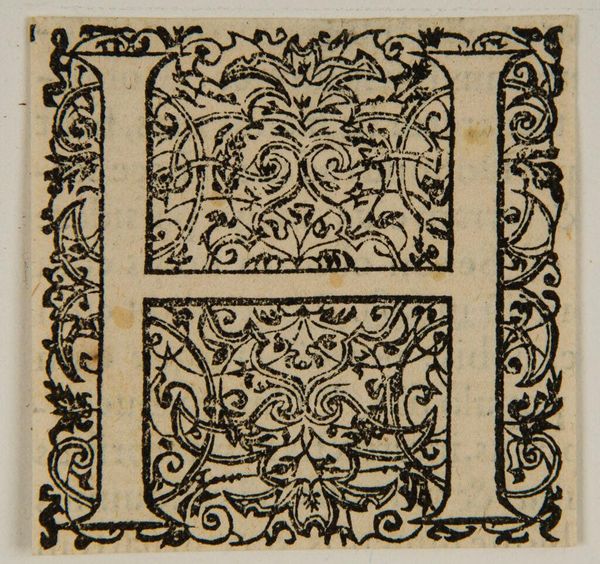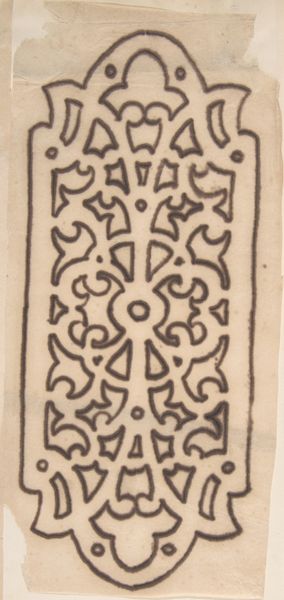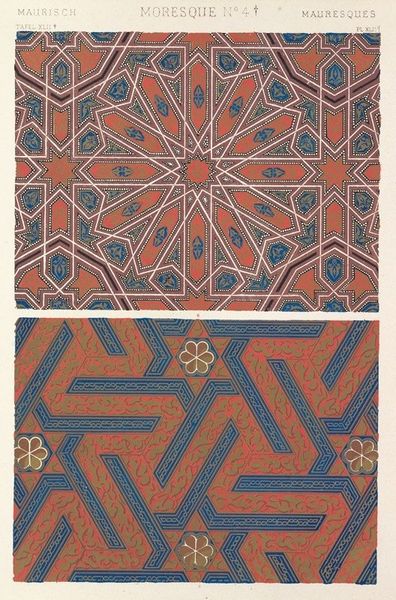
In the House of Pompeii, upstairs portion of the short wall in the small courtyard of bathrooms
0:00
0:00
print, engraving
# print
#
geometric
#
ancient-mediterranean
#
line
#
cityscape
#
history-painting
#
engraving
Copyright: Public domain
Here is Giovanni Battista Piranesi's etching, made in Italy in the 18th century, depicting a mosaic in Pompeii. Piranesi, best known for his etchings of Roman ruins and antiquities, captured this mosaic's meander pattern, typical of ancient Roman art. The mosaic, found in the House of Pompeii, offered eighteenth-century viewers a glimpse into the daily lives and aesthetics of the ancient world. Piranesi's focus on classical antiquity reflects the period’s fascination with ancient civilizations, fueled by archaeological discoveries like Pompeii. Through such precise visual records, institutions such as museums and academies could classify and study classical design. By documenting and disseminating these designs, Piranesi shaped contemporary artistic production, providing a visual repertoire for architects, designers, and artists. To fully understand this image we might consult archaeological reports, period travelogues, and design treatises that could provide additional context about this artwork.
Comments
No comments
Be the first to comment and join the conversation on the ultimate creative platform.
